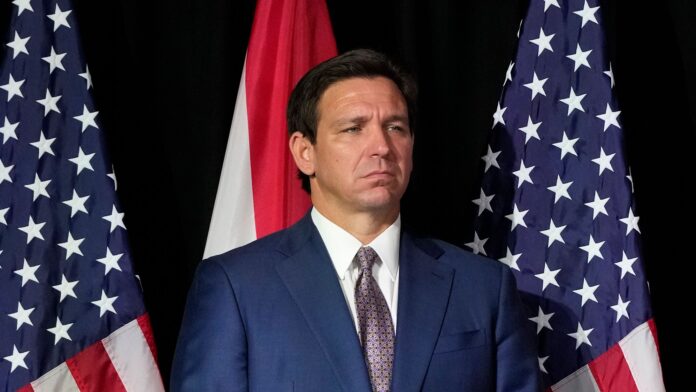As Florida Governor Ron DeSantis gears up for his official entrance into the 2024 GOP presidential primary this coming Wednesday, May 24, it’s worth taking a closer look at his controversial past. Not only is he lagging in polls behind former President Trump, but DeSantis’ grasp of history, as detailed in his previous book, is raising more than a few eyebrows.
Despite his underdog status in the primary, DeSantis has been keen to market himself through his latest book, “The Courage to Be Free: Florida’s Blueprint for America’s Revival.” However, it’s his earlier work, “Dreams From Our Founding Fathers: First Principles in the Age of Obama,” released in 2011, that has recently stirred debate and garnered attention from journalist Gillian Brockell.
In an op-ed by Brockell, she points out the rather sizable gaps in DeSantis’ historical knowledge. So sizeable, in fact, that the book’s publisher quietly removed it from their website.
According to Brockell, DeSantis’ book tries to paint President Barack Obama’s administration as a period of dangerous overreach, going against what the Founding Fathers would have wanted. Examples he cites as evidence include the auto-industry bailout, the 2009 stimulus package, and the Affordable Care Act (Obamacare).
However, Brockell highlights that DeSantis’ method of using isolated quotes from historical figures, including Madison and Dr. Martin Luther King Jr., is often without context. She describes this practice as “cherry-picking” history to serve his narrative.
Brockell also points out a significant blunder in DeSantis’ portrayal of the Founding Fathers’ views on property rights. In the book, he accuses Obama of disrespecting property rights through various regulations. Yet, when discussing James Madison’s defense of property rights at Virginia’s 1829 Constitutional Convention, DeSantis sidesteps the fact that Madison was defending his ownership of enslaved people.
The issue at hand in 1829 was that only white male property owners could vote in Virginia, and many non-property-owning white men were pushing for suffrage. Madison, however, resisted these calls for fear of them threatening his ownership of enslaved people. Brockell points out that DeSantis’ omission of this context is a glaring example of his “cherry-picking” tactics.
With DeSantis’ historical interpretation under scrutiny, and his book now scrubbed from publishers’ websites, it remains to be seen how these controversies will affect his presidential aspirations. Will the public overlook his historical blunders, or will they influence his chances of gaining traction in the 2024 GOP primary race? Only time will tell.



